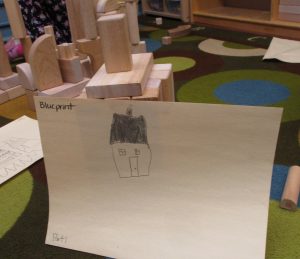Why should children play with blocks
Why should children play with blocks? At First Congregational Preschool in Meriden, CT, block play is viewed as one of the most powerful ways young children learn. Far more than “just play,” building with blocks encourages critical thinking, problem-solving, creativity, and social-emotional growth. When blocks are placed in a child’s hands, countless opportunities for learning unfold naturally.
Why Should Children Play with Blocks for Early Learning?
Block play incorporates nearly every skill children need to be successful in school and in life. While it may appear simple, the benefits reach across all areas of development. Because there is no single “correct” way to build, every child is empowered to play and learn at their own pace.
Through block play, children practice essential skills in:
- Reading, writing, speaking, and listening
- Math, science, and social studies
- Physical growth and coordination
- Creativity and self-expression
- Collaboration and respect for others
At First Congregational Preschool, block play is intentionally encouraged as part of our curriculum that values play as a critical pathway to learning.
Social and Emotional Growth Through Playing with Blocks
When children build with blocks, important social-emotional learning is strengthened. Block play fosters:
- Confidence and independence
- Cooperation and teamwork
- Respect for peers’ ideas and creations
- Problem-solving and risk-taking in a safe environment
These experiences help children understand how to get along with others—a skill just as vital as academic knowledge.
Math and Science Skills Built with Blocks
Math and science concepts are naturally discovered through block play. Children begin to recognize patterns, measure distances, compare sizes, and experiment with symmetry. They also explore cause and effect as towers tumble and are rebuilt.
Skills developed include:
- Counting, sorting, and sequencing
- Classification and mapping
- Properties of matter and force
- Observation, experimentation, and creative problem-solving
This hands-on exploration lays the foundation for future STEM learning. For more insights, see this National Association for the Education of Young Children (NAEYC) article.
Literacy and Creativity Development
As children describe their structures, they practice expressive language and storytelling. They label parts, invent roles, and create imaginative scenarios. Block play strengthens oral language, vocabulary, and symbolic representation. These are skills that support early reading and writing.
In addition, block building encourages artistic growth by introducing design, pattern-making, and self-expression. Creative confidence developed through play often transfers to problem-solving in daily life. Learn more about “What art really is…” in this article.
Why Should Children Play with Blocks for Physical Development?
Blocks also promote physical growth by improving fine and gross motor skills. Lifting, stacking, and balancing blocks enhance coordination, body awareness, and bilateral movement. These motor skills prepare children for writing, self-care, and other daily tasks.
Why Should Children Play with Blocks for Social Studies?
Through role play and building communities with blocks, children learn about people, work, and relationships. They explore cooperation, symbolic representation, and social interaction. These experiences mirror real-life community building and encourage empathy.
More Than “Just Play”
When children are deeply engaged in block play, it may look like simple fun – but it is actually structured learning with lifelong benefits. At First Congregational Preschool, our classrooms are intentionally set up so children can thrive through play. By working with blocks, they gain the tools needed for school success and, just as importantly, for building positive relationships throughout life.
To read more about our approach to learning through play, visit our curriculum page. For additional tips on early childhood development, explore our blog section.



Leave a Reply